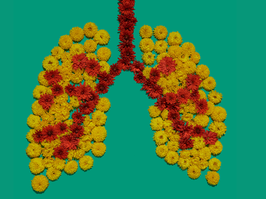chronic obstructive pulmonary disease (copd)
chronic obstructive pulmonary disease (copd) is a chronic inflammatory lung disease that causes obstructed airflow from the lungs. it's characterized by long-term breathing problems and poor airflow, primarily caused by two main conditions: emphysema and chronic bronchitis. emphysema involves damage to the air sacs (alveoli) in the lungs, and chronic bronchitis involves a long-term cough with mucus.
symptoms of copd include shortness of breath, wheezing, chest tightness, chronic cough with mucus production, frequent respiratory infections, and fatigue. these symptoms often worsen over time and can limit the ability to perform routine activities.
the primary cause of copd is long-term exposure to irritating gases or particulate matter, most commonly from cigarette smoke. other risk factors include exposure to air pollution, dust, and chemical fumes in the workplace, and a rare genetic condition known as alpha-1 antitrypsin deficiency.
copd is diagnosed through lung function tests, such as spirometry, which measures the amount and speed of air a person can exhale. imaging tests like chest x-rays and ct scans, and blood tests may also be used.
while there's no cure for copd, treatment can help control symptoms and reduce the risk of complications. treatment includes smoking cessation, medications like bronchodilators and steroids, pulmonary rehabilitation, and in severe cases, oxygen therapy or surgery.
preventive measures focus on minimizing exposure to lung irritants, particularly quitting smoking. regular exercise and a healthy diet can also support lung health.
ongoing research in copd aims to better understand the disease, develop new treatments, and find ways to prevent it or slow its progression.










